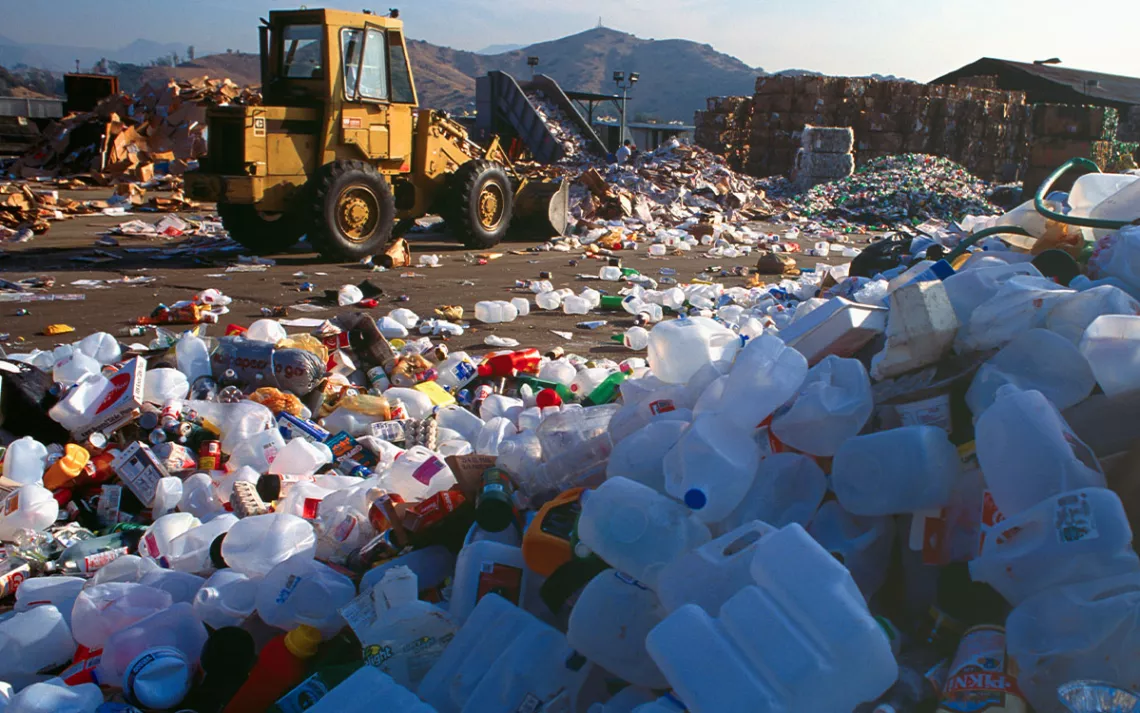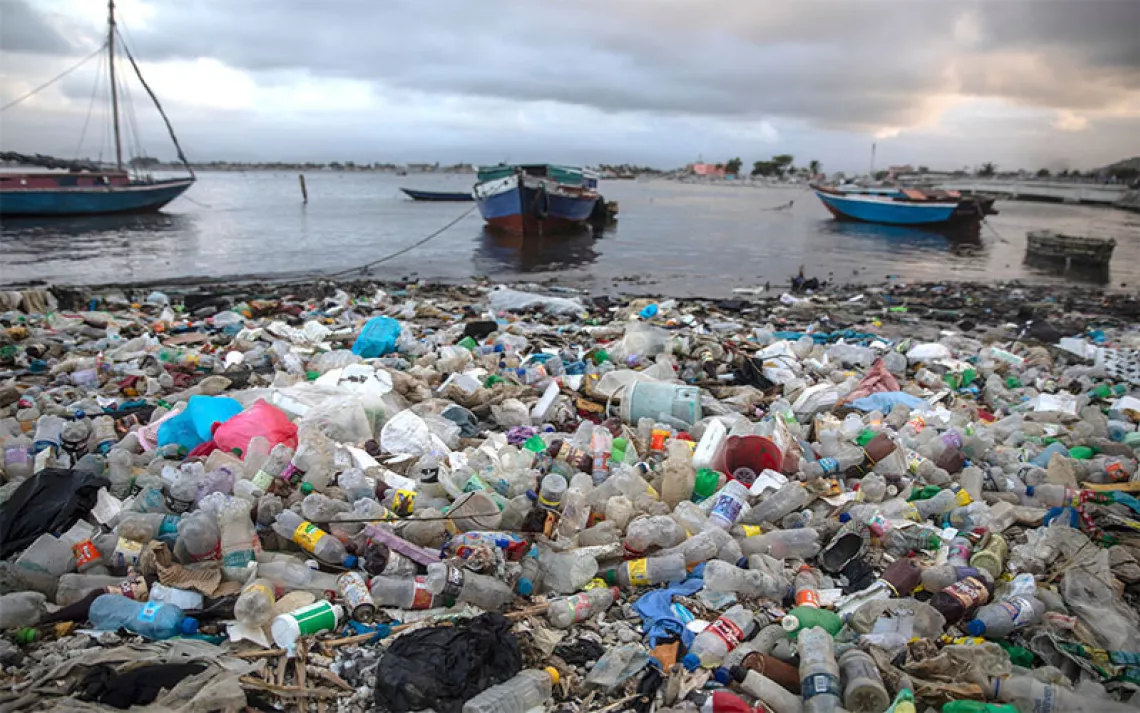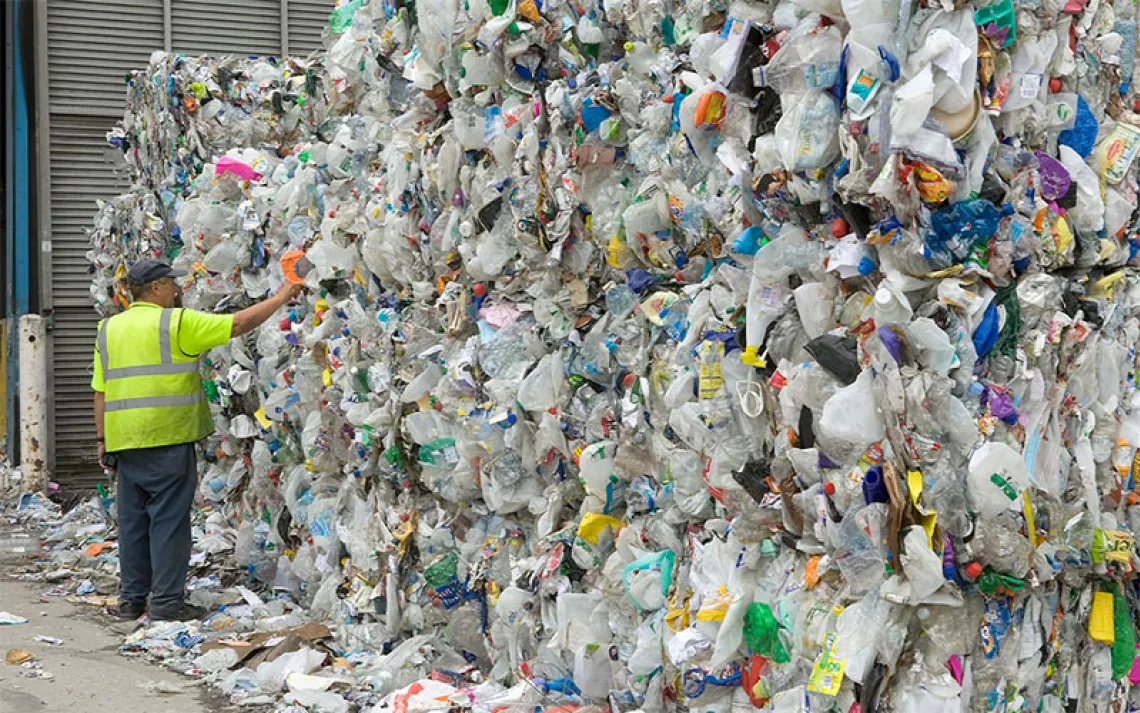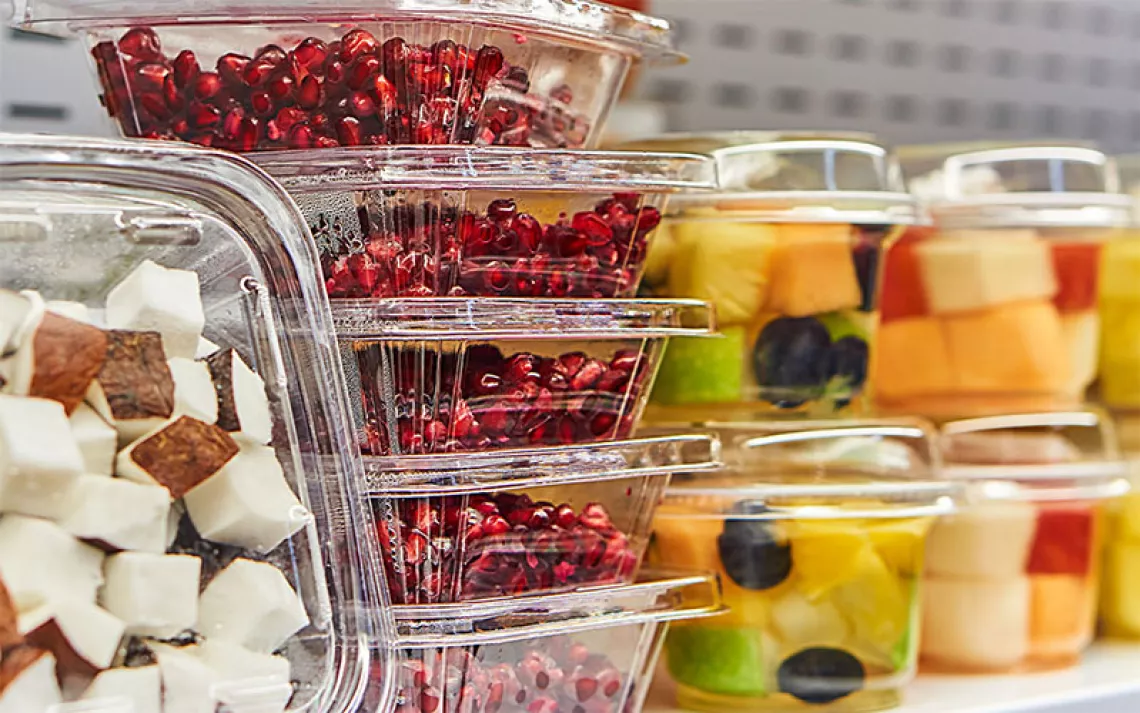ExxonMobil Lied About Plastics Recycling, Lawsuits Claim
The State of California and environmental groups including the Sierra Club say the petrochemical giant always knew recycling wouldn’t work

Photo by Bill Varie/Getty Images
For 50 years, the plastics industry lied about the recyclability of plastic, a “campaign of deception” that deflected regulation and boosted profits while unleashing a tide of toxic plastic pollution, according to a pair of groundbreaking lawsuits filed Monday by the California attorney general and four environmental groups.
Taking aim at the world’s largest maker of single-use plastic polymers, the suits name ExxonMobil as defendant, though numerous plastic industry front groups are also named as supporting players in the attorney general’s 147-page filing, and other defendants could be added later. The two paired suits filed in San Francisco Superior Court follow an investigation announced in April 2022 by California attorney general Robert Bonta, and a separate probe by lawyers working for the Sierra Club, the Surfrider Foundation, Heal the Bay, and San Francisco Baykeeper.
During a Monday morning press conference, Bonta criticized ExxonMobil for ramping up production of single-use plastics while making false promises about sustainability and recyclability. The recycling campaign was great public relations, Bonta said, but the company knew all along that recycling disposable plastics was either too technically challenging or too expensive to work. Its newest tactic is to promote a supposedly new technology, “advanced recycling,” that uses heat or solvents to reduce plastic chemically—as opposed to the usual mechanical recycling process of grinding up the material. Bonta said this idea is neither new nor practical and can only recycle 1 percent or less of plastic waste at great expense.
“The company has propped up sham solutions, manipulated the public, and lied to consumers,” Bonta said. “It's time ExxonMobil pays the price for its deceit.”
The attorney general went on to say, “Plastic contaminates our drinking water, strangles our wildlife, and blights our landscapes. Microplastics have been found in our lungs, maternal and placental tissue, breast milk, and blood.… It's time ExxonMobil is held accountable.”
“The company has propped up sham solutions, manipulated the public, and lied to consumers.”
A central premise of both the state lawsuit and the environmental groups’ complaint is that during a critical time in the 1970s and 1980s, when consumers were being asked to shift from such products as reusable glass soda bottles to disposable plastic ones, the false promise of recyclability assuaged the public and persuaded policymakers not to regulate the new materials or to demand a return to reusability. The shift was also a windfall for certain industries—dairies, breweries, and soda companies—which once bore the cost of washing and reusing glass bottles as part of their cost of doing business. The shift to throwaway plastics meant those items would be collected with the trash, and taxpayers would foot the bill. That shift, according to the lawsuits, is how the industry can claim plastics are cheaper—because the cost of the plastic waste left behind, whether it’s landfilled or recycled, isn’t reflected in the manufacturer’s cost.
A companion campaign to blame plastic pollution on consumers for being litterbugs also shifted attention from corporate to individual behavior. The infamous “Crying Indian” advertisement that debuted in the early '70s crystalized this message by stating, “People make pollution. People can stop it.” But people couldn’t, the lawsuits allege, because plastic recycling was a sham—then and now. To make their case, the lawsuits cite industry reports, memos, and other internal documents linked to ExxonMobil.
“The company has brainwashed everyone into thinking that plastic recycling works and it's good for the planet,” said Segal Choksi-Chugh of San Francisco Baykeeper.
Both suits quote the work of the Climate Integrity Project, which produced a report, The Fraud of Plastic Recycling, in February based on internal documents showing the plastics industry has long known single-use plastics were essentially unrecyclable—with only 5 to 6 percent of them recycled in the US at present. The report quotes an industry insider who stated that even the iconic “chasing arrows” recycling symbol was just an industry marketing gimmick, slapped on all sorts of plastic packaging that can’t be recycled.
The accountability goals of the two suits are far-reaching and potentially costly if ExxonMobil loses in court—to “the tune of billions of dollars to abate the harm caused by their deceit,” according to Bonta. He said if an abatement fund is established, it could be used to re-educate consumers about recycling realities (perhaps leading them to reject disposable plastics); to clean up environmental damage from plastic pollution; to fund the creation of a workable plastic recycling system; or to pay for the development of new materials to replace the unrecyclable plastics ExxonMobil currently makes.
The four environmental groups have an even more ambitious goal at the heart of their suit: to win an injunction against the company that would prohibit single-use plastic containers, bottles, packaging, wraps, bags, and other products as they currently exist.
“You [have to] stop the problem at its source, that is the production of single-use plastics,” said Niall McCarthy, the attorney representing the four environmental groups. “I think that is critical in shaping the future to avoid this problem.”
ExxonMobil issued a statement in response, shifting blame to the public and government for recycling problems:
“For decades, California officials have known their recycling system isn't effective. They failed to act, and now they seek to blame others. Instead of suing us, they could have worked with us to fix the problem and keep plastic out of landfills. The first step would be to acknowledge what their counterparts across the US know: Advanced recycling works.”
Other environmental groups that aren’t involved in the litigation praised the lawsuits. “Petrochemical companies have lied about plastic recyclability for years, with dire consequences,” said Julie Teel Simmonds of the Center for Biological Diversity. “Every corner of the world is infiltrated by plastic pollution, and we’re all carrying microplastics in our bodies. Only bold actions like those of Attorney General Bonta can stop Big Oil and the plastics industry from telling lies to keep making harmful products we don’t need.”
 The Magazine of The Sierra Club
The Magazine of The Sierra Club



